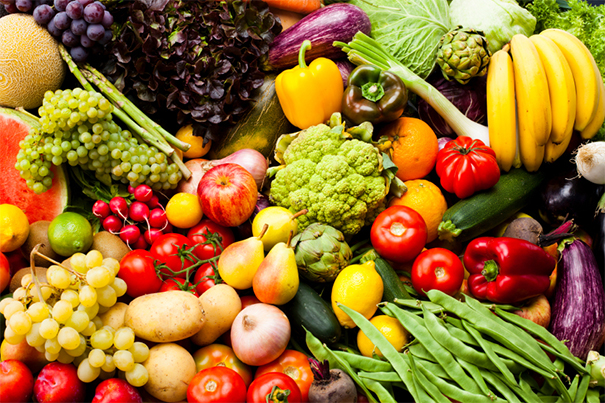
“To our knowledge, this is the first report to link consumption of pesticide residues in fruits and vegetables, a primary exposure route for most people, to an adverse reproductive health outcome in humans,” said Jorge Chavarro, assistant professor of nutrition and epidemiology and the study’s senior author.
iStock
Pesticides result in lower sperm counts
Eating fruits and vegetables with high pesticide residue also had impact on sperm quality
Men who ate fruits and vegetables with higher levels of pesticide residues — such as strawberries, spinach, and peppers — had lower sperm counts and lower percentages of normal sperm than those who ate produce with lower residue levels, according to a new study by researchers at Harvard T.H. Chan School of Public Health. It is the first study to look at the connection between exposure to pesticide residues from fruits and vegetables and semen quality.
The study appeared online today in the journal Human Reproduction.
“To our knowledge, this is the first report to link consumption of pesticide residues in fruits and vegetables, a primary exposure route for most people, to an adverse reproductive health outcome in humans,” said Jorge Chavarro, assistant professor of nutrition and epidemiology and the study’s senior author.
Numerous studies had shown that consuming conventionally grown fruits and vegetables resulted in measurable pesticide levels in urine. Other studies had uncovered associations between occupational and environmental exposure to pesticides and lower semen quality. But only a few studies had linked consumption of pesticide residues in food to health effects, and none had looked at the effects on semen quality.
The researchers used data from 155 men enrolled in the Environment and Reproductive Health (EARTH) study, an ongoing National Institute of Environmental Health Sciences-funded study at a fertility center in Boston. Data included 338 semen samples provided between 2007 and 2012 and validated survey information about participants’ diets. The researchers classified fruits and vegetables according to whether they contained high amounts of pesticide residues (such as peppers, spinach, strawberries, apples, and pears) or low-to-moderate amounts (such as peas, beans, grapefruit, and onions), based on data from the U.S. Department of Agriculture Pesticide Data Program. They then adjusted for factors such as smoking and body mass index — both known to affect sperm quality — and looked for connections between the men’s intake of produce with pesticide residue and the quality of their sperm.
The results showed that men who ate greater amounts of fruits and vegetables with higher levels of pesticide residue — more than 1.5 servings per day — had 49 percent lower sperm count and 32 percent lower percentage of normal sperm than men who ate the least (less than 0.5 serving per day). They also had a lower sperm counts, lower ejaculate volumes, and lower percentages of normal sperm.
The men who ate the most fruits and vegetables with low-to-moderate levels of pesticide residue had higher percentages of normal sperm than those who ate less fruits and vegetables with low-to-moderate levels.
“These findings should not discourage the consumption of fruit and vegetables in general,” said Chavarro. “In fact, we found that consuming more fruits and vegetables with low pesticide residues was beneficial. This suggests that implementing strategies specifically targeted at avoiding pesticide residues, such as consuming organically grown produce or avoiding produce known to have large amounts of residues, may be the way to go.”
Other Harvard Chan School researchers involved in the study included lead author Yu-Han Chiu, Myriam Afeiche, Audrey Gaskins, Paige Williams, and Russ Hauser.
Funding for the study came from the National Institute of Environmental Health Sciences, National Institutes of Health grants, and Ruth L. Kirschstein National Research Service Award.





